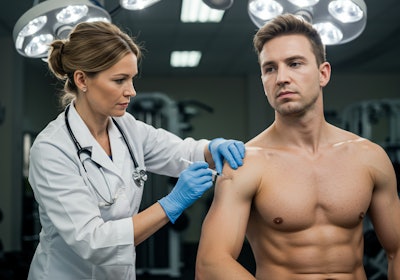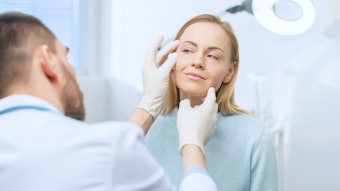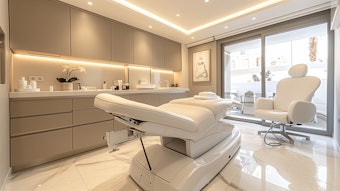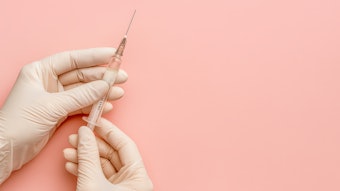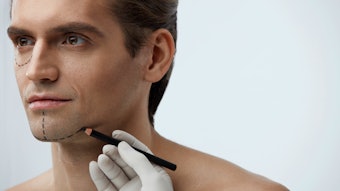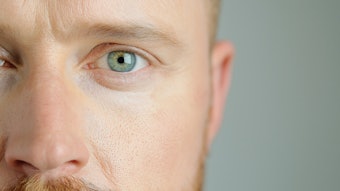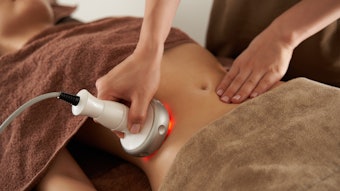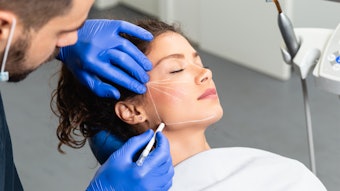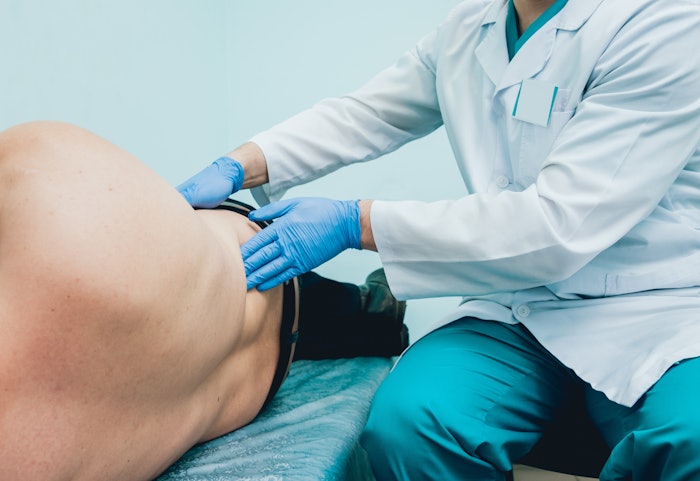
When men think of “aesthetic outcomes,” they often imagine muscularity, lean body composition, healthy skin and youthful vitality. But what many don’t realize is that optimizing aesthetics isn’t just about gym time or supplements, but rather deeply rooted in underlying health, hormonal balance and fertility status. As a urologist specializing in men’s health, I see every day how medical conditions shape not only how a man feels, but how he looks.
This article is only available to registered users.
Log In to View the Full Article
When men think of “aesthetic outcomes,” they often imagine muscularity, lean body composition, healthy skin and youthful vitality. But what many don’t realize is that optimizing aesthetics isn’t just about gym time or supplements, but rather deeply rooted in underlying health, hormonal balance and fertility status. As a urologist specializing in men’s health, I see every day how medical conditions shape not only how a man feels, but how he looks.
How Medical Conditions Influence Aesthetics
Metabolic Health
Conditions like obesity, diabetes and metabolic syndrome are some of the strongest drivers of poor male aesthetics. Elevated insulin and chronic inflammation promote fat storage, particularly in the abdomen, while reducing lean muscle. These same processes lower testosterone levels, leading to gynecomastia (male breast enlargement), reduced facial hair density and diminished energy for exercise.
Cardiovascular Disease and Blood Flow
Erectile dysfunction is often the first sign of vascular disease, but poor circulation also affects muscle recovery, skin health and even hair. Diminished nitric oxide signaling doesn’t just impact performance, it can blunt the vibrancy and physical edge that many men seek.
Hormonal Disorders
Low testosterone, pituitary dysfunction or thyroid imbalances are often overlooked when men struggle with body composition despite disciplined workouts. Suboptimal testosterone impacts muscle protein synthesis, bone density and fat distribution, often leaving men with a softer, less defined appearance.
Fertility as a Window Into Aesthetics
Semen quality isn’t just about family planning, it’s also a biomarker for male health. Poor sperm counts often correlate with low testosterone, obesity and metabolic dysfunction. Men with higher fertility potential tend to display stronger secondary sexual characteristics: lean muscle, energy and vitality.
The Hormone-Aesthetic-Fertility Triad
Male hormones and fertility are not isolated systems, they are interconnected with aesthetics in several key ways:
- Testosterone: Drives muscle development, fat distribution, libido and confidence. Low T manifests as fatigue, sarcopenia (muscle loss), abdominal obesity and a prematurely aged look.
- Estradiol (derived from testosterone): Essential for bone health and body composition; too much conversion leads to fat gain and breast tissue growth.
- DHT (dihydrotestosterone): Enhances beard growth and body hair but in excess contributes to male pattern baldness.
- Spermatogenesis: The testicles require a healthy hormonal environment; when fertility falters, so do many aesthetic markers of vitality.
 Sperm quality isn’t just about fertility—it’s a window into a man’s overall health and aesthetic potential.Courtesy of Agus Ismanto ar Adobe Stock
Sperm quality isn’t just about fertility—it’s a window into a man’s overall health and aesthetic potential.Courtesy of Agus Ismanto ar Adobe Stock
Supplements: A Double-Edged Sword
Many men turn to over-the-counter supplements for aesthetic enhancement, creatine, testosterone “boosters,” fat burners, and hair-loss remedies. While some have evidence-based benefits, others may be inappropriate or even harmful depending on a man’s health background.
Testosterone Boosters
- Who may benefit: Men with mild, age-related declines in testosterone may feel improved energy.
- Who should avoid: Younger men pursuing fertility. Many herbal or prohormone-based “boosters” can disrupt natural testosterone production, suppress sperm counts or interfere with pituitary signaling.
Hair Growth Medications & Supplements
Agents like finasteride can improve hair density but may alter DHT metabolism, sometimes leading to sexual side effects. Not every man tolerates this trade-off, particularly those already struggling with libido or fertility.
Fat Burners and Stimulants
Products containing caffeine, synephrine or yohimbine may transiently boost fat loss. But in men with hypertension, cardiac disease or anxiety, they pose serious risks, ranging from arrhythmia to panic attacks.
Creatine
Evidence supports creatine as safe and effective for muscle growth, but men with underlying kidney disease should avoid it, as creatine metabolism places extra demand on renal clearance.
Collagen and Skin Health Supplements
Collagen peptides can enhance skin elasticity and joint support, but if men expect them to “reverse aging” without addressing underlying sleep, diet and hormone health, they’ll be disappointed.
Why “More” Isn’t Always Better
The supplement aisle tempts men with the promise of shortcuts, but unregulated dosing, hidden ingredients and interactions with existing medical conditions make them a minefield. What enhances aesthetics in one man may compromise fertility, hormones or cardiovascular health in another. For example:
- A supplement that raises testosterone may simultaneously lower sperm count.
- A fat burner that trims the waistline could spike blood pressure.
- A hair-loss pill may cost a man his libido.
This is why a personalized, physician-guided approach is essential, especially for men in their reproductive years or those with chronic conditions.
The Clinical Takeaway
A man’s muscle tone, skin quality, hair and vitality, are not cosmetic afterthoughts; they are reflections of his underlying health. When evaluating aesthetics, we must look through the lens of metabolic status, hormonal balance, cardiovascular fitness and fertility.
As a rule of thumb when considering aesthetic treatments:
- Prioritize baseline health first: sleep, diet, strength training, stress reduction.
- Screen for underlying disease: check testosterone, thyroid, cardiovascular risk and fertility status when appropriate.
- Select supplements carefully: evidence-based, condition-appropriate and under medical supervision.
True male aesthetics are built on health. Shortcuts that ignore underlying conditions often backfire, undermining not only appearance but also longevity, fertility and quality of life.
About the Author:
Justin Houman, MD is a nationally recognized urologist and Assistant Professor of Urology at Cedars-Sinai Medical Center, specializing in Men’s Health, Male Fertility and Sexual Medicine. As a fellowship-trained expert, he is committed to optimizing men’s well-being through state-of-the-art, evidence-based treatments for erectile dysfunction, testosterone optimization, Peyronie’s disease and reproductive health. His patient-first approach integrates cutting-edge medical advancements with holistic lifestyle strategies, ensuring personalized, comprehensive care tailored to each individual.
Houman completed his medical training at Cedars-Sinai Medical Center in Los Angeles before advancing his expertise at UCLA, home to one of the nation’s top programs in Male Reproductive Medicine and Surgery. There, he mastered microsurgical and minimally invasive techniques for male infertility, hormone management and complex urologic conditions.
